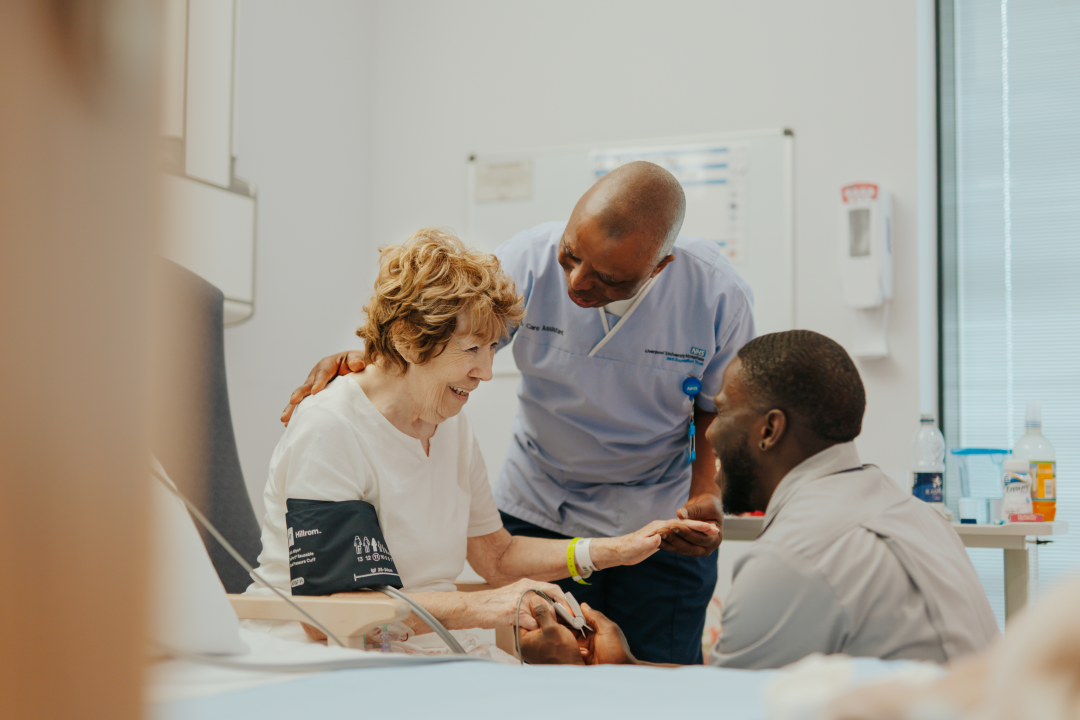Our plan for fitness to practise
Our plan for fitness to practise will ensure we can continue making decisions that keep people safe, do that in the most timely and considerate way possible, and in a way that will be sustainable into the future.

Our purpose
One of the ways we do this is by looking into issues raised about individual nurses, midwives and nursing associates – something that affects very few people on our register every year. We determine whether their skills, knowledge, education or behaviour fall below the standards needed to deliver safe, effective and kind care. If they do, we can take steps to keep the public safe and prevent something from going wrong again. Our fitness to practise processes are the way we do this.
From the members of the public who we help to keep safe, and those raising concerns, to the professionals we investigate, to our colleagues, whose empathy, skills and knowledge support those affected.
We’re dedicated to supporting the people we interact with, helping them to engage with us and working with them. That enables us to protect the public by resolving cases as quickly, and safely, as possible.
This includes removing professionals from our register in the most serious cases. But most of the time the best way to keep people safe is to learn from incidents and stop similar things happening again in the future.
Where we’re heading
Our aims for fitness to practise are:
A professional culture that values equality, diversity and inclusion, and prioritises openness and learning in the interest of patient safety
Nurses, midwives and nursing associates who are fit to practise safely and professionally
To deliver those aims, we need a fitness to practise service that is truly person-centred, collaborative, and straightforward for everyone involved.
Read more on our aims and principles for fitness to practise.
How we’ll get there
The first thing we need is the right resourcing: the right people in the right places.
The second thing we need is a modern IT system that enables us to better support professionals from the moment they register with us to the moment they leave the profession – including any interactions someone might have with us through fitness to practise. We’ve already made significant improvements to the way we process registrations, and now it's time for us to do the same for our fitness to practise system.
Longer term, regulatory reform will help us resolve cases earlier and more efficiently, but it is only one part of the equation – we can do a lot within our current legislation to improve the experience of our customers and our colleagues.
We need to manage changes to fitness to practise in a phased way to ensure they deliver the benefits we all want to see. We need an agile approach and this means testing and learning as we go – being led by data and feedback from our people.
Our plan for fitness to practise
Our plan will improve fitness to practise so we can continue making decisions that keep people safe, do that in the most timely and considerate way possible, and in a way that will be sustainable into the future.
That’s best for the person who first raised the concerns, the professional whose fitness to practise we’re considering and their employer, and it supports learning in the interests of everyone who uses health and care services in the UK.
We have committed £30 million over three years to invest in the capacity and capabilities we need that will enable us to deliver the benefits we want to see. That includes the recruitment of additional colleagues to fitness to practise and investment in legal services.
While we may need to update our plan following the outcomes of the independent Culture review and investigations, it sets out a clear strategic approach for the next 18 months in fitness to practise, and prepares the ground for the future.
The plan prioritises seven key areas. We’ll be able to deliver some operational changes relatively quickly, but other improvements will take more time.
We will help employers and the public to understand when a referral to the NMC is appropriate, enabling us to focus on safe and swift progression of cases that are appropriate for us as the regulator. For those referrals we do receive and progress, we will ensure everyone involved is properly supported, and our decision makers have access to the right clinical and safeguarding advice.
We will expand our screening team, which provides an initial assessment of new concerns. We will make sure more referrals are being actively progressed, and we will swiftly progress the most serious cases which may require an interim order to restrict someone’s practice.
Outsourcing work, where appropriate, has long been part of our operating model in fitness to practise. We will expand this to ensure more cases are being actively progressed, and to release our internal legal capacity to prepare and present more cases at hearings or meetings.
We will introduce new approaches to allocating and risk assessing cases, with a focus on cases with interim orders that restrict a professional’s practice. We will introduce additional management capacity to support case progression.
We will review the skills, experience, training and support our hearing coordinators need to manage hearings effectively. We will increase our panel capacity and run more hearings.
We will recruit and retain skilled and engaged colleagues, and make sure that resourcing and oversight remain appropriate to the number and cases we are progressing.
We will introduce a new case management system in 2025. This will better equip our teams to progress cases safely and swiftly in a person-centred way, and ensure the public is protected.






